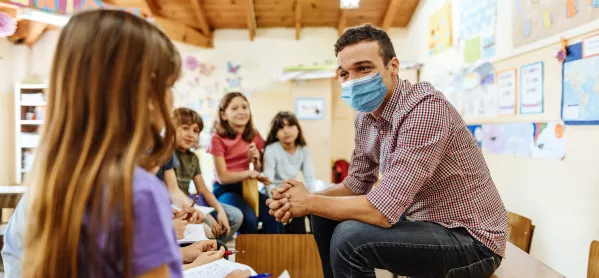Primary school bubbles should not have to isolate when a pupil displays signs of coronavirus because children frequently suffer from flu-like symptoms over winter, scientists have said.
The paediatricians, writing in the British Medical Journal, are urging the government to relax isolation rules for primary pupils to prevent them from missing “significant quantities of schooling” this winter.
Their report also recommends putting teachers ahead of children in the queue for a vaccine and prioritising schools for rapid spit tests when these become available.
Guidance: Timetabling bubbles - FAQs from the government guidance
Read: Heads told to prioritise full pupil attendance over staff safety
Back to school: How will ‘bubbles’ work?
Young children get between four and eight respiratory infections every winter, which could lead to the mass closure of primary schools if their contacts must isolate while waiting on test results each time, according to the Archives of Disease in Childhood report.
The paediatricians also warn the government that a “blanket policy” for all ages limits parents’ ability to work and siblings’ freedom to attend school, adding that primary-age pupils should not be subject to the same rules as those in secondary school because of their lower infection risk.
They say: “The blanket policy currently deployed for children of all ages is not evidence-based and is too restrictive and inflexible, significantly disadvantaging primary school children and their families.
“The impact of missed schooling on children’s physical and mental health and educational development during the first wave of the pandemic far outweighed the benefits of shutting schools in a bid to curb the spread of the virus.”
